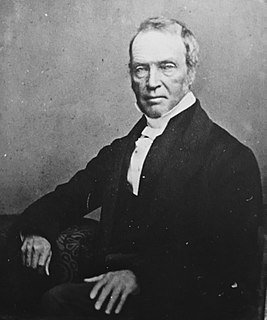Related Research Articles
William Bathe was a Anglo-Irish Jesuit priest, musician and writer.
John Forster was an Irish lawyer, politician and judge.

The Court of King's Bench was one of the senior courts of common law in Ireland. It was a mirror of the Court of King's Bench in England. The King's Bench was one of the "Four Courts" which sat in the building in Dublin which is still known as "The Four Courts", and is still in use.

Richard Wilson Greene PC, KC (1791–1861) was an Irish barrister and judge.

The chief justice of the Common Pleas for Ireland was the presiding judge of the Court of Common Pleas in Ireland, which was known in its early years as the Court of Common Bench, or simply as "the Bench". It was one of the senior courts of common law in Ireland, and was a mirror of the Court of Common Pleas in England. The Court of Common Pleas was one of the "four courts" which sat in the building in Dublin which is still known as the Four Courts, apart from a period in the fourteenth century when it relocated to Carlow, which was thought to be both more central and more secure for the rulers of Norman Ireland.
Robert Hellen was an Irish politician, Solicitor-General, and judge of the Court of Common Pleas (Ireland).

John Bathe was an Irish barrister and judge. He was a member of a famous legal dynasty, and had a distinguished career under the Tudors, holding office as Solicitor General for Ireland and Chief Justice of the Irish Common Pleas.
Sir Thomas Luttrell was a wealthy Anglo-Irish landowner of the sixteenth-century Irish Pale. He was also a distinguished lawyer and judge who held the offices of King's Serjeant, Solicitor General for Ireland and Chief Justice of the Irish Common Pleas.

The Court of Common Pleas was one of the principal courts of common law in Ireland. It was a mirror image of the equivalent court in England. Common Pleas was one of the four courts of justice which gave the Four Courts in Dublin, which is still in use as a courthouse, its name.
Richard Clayton (1702–1770) was an English-born politician and judge in eighteenth-century Ireland who held the office of Chief Justice of the Irish Common Pleas. His reputation was seriously damaged by the trial and execution of Father Nicholas Sheehy, which is acknowledged to have been a notable miscarriage of justice.
Sir Richard Kennedy, 2nd Baronet, of Newtownmountkennedy (c.1615-1685) was an Irish politician, landowner and judge who held the office of Baron of the Court of Exchequer (Ireland). He was the second of the Kennedy Baronets of Newtownmountkennedy. His family gave their names to the village of Newtownmountkennedy in County Wicklow. He was notable though not unique among the Irish judges of his time for being of Gaelic descent.
Nicholas Fastolf was an English-born judge who was a leading member of the early Irish judiciary; according to some sources, he was the first judge to hold the office of Lord Chief Justice of Ireland. He was an ancestor of Sir John Fastolf, who is generally thought to have inspired Shakespeare's character Falstaff.
The Burnell family were a Dublin family who were prominent in Irish public life and in the arts from the fourteenth to the seventeenth century. They acquired substantial estates in County Dublin, and married into the Anglo-Irish aristocracy. They produced several judges and politicians, a leading playwright, and one of the first female Irish poets. They were staunch Roman Catholics, who opposed the Penal Laws, and supported the Irish Confederacy in the 1640s. They forfeited most of their lands after the failure of the Confederate cause, and never recovered them.
Sir John Jeffreyson (1635–1700) was an English-born judge whose entire judicial career was spent in Ireland. He was unusual among Irish judges of the time in holding the rank of English Serjeant-at-law. He was considered an outstanding lawyer, and was noted for his staunchly Tory views in politics.

Sir William Bathe was an Irish judge and landowner. He is commemorated by the Dowdall Cross in Duleek, County Meath, which was erected by his widow Janet Dowdall in 1601. He should not be confused with his much younger cousin William Bathe of Drumcondra Castle, who was a Jesuit and noted musicologist.
Thomas Burton Vandeleur was an Irish barrister and judge.
Robert (Bob) Johnson (1745–1833) was an Irish barrister, politician and judge. He sat in the Irish House of Commons and was a judge of the Court of Common Pleas (Ireland).
Sir Robert Dillon of Newtown near Trim was an Irish judge of the Tudor era. He served as Chief Justice of the Irish Common Pleas for more than twenty years, despite repeated calls for his removal on the grounds of age and ill-health.
William Johnson (1760-1845) was an Irish politician, law officer and judge of the early nineteenth century. He sat in the Irish House of Commons, served as Serjeant-at-law (Ireland) and was a justice of the Court of Common Pleas (Ireland).

Peter Palmer was an English-born judge who served in Ireland for many years.
References
- Ball, F. Elrington The Judges in Ireland 1221-1921 London John Murray 1926
- Smyth, Constantine Joseph Chronicle of the Law Officers of Ireland London Butterworths 1839